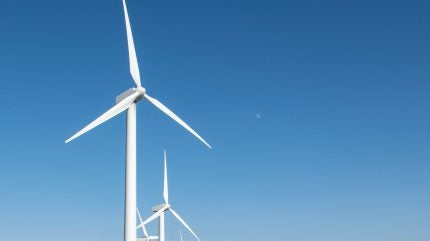
Ming Yang Smart Energy, a Chinese wind turbine manufacturer, has announced plans to invest up to £1.5bn ($2bn) to establish a manufacturing base in Scotland.
The facility will focus on producing offshore and floating turbines, with the first phase expected to be operational by the end of 2028. This project marks a significant step in Ming Yang’s expansion into the UK and European markets.

Discover B2B Marketing That Performs
Combine business intelligence and editorial excellence to reach engaged professionals across 36 leading media platforms.
The investment will be executed in three phases, with the first phase involving a £750m investment in an advanced manufacturing facility. This phase is projected to create 1,500 jobs initially and contribute to the development of an industry ecosystem.
The project will be funded by Ming Yang’s own capital, aiming to serve the UK, European, and other non-Asian markets.
Several sites in Scotland have been shortlisted for the facility, with Ardersier in the Highlands emerging as the preferred option.
Ming Yang recently partnered with Octopus Energy to develop new wind projects.

US Tariffs are shifting - will you react or anticipate?
Don’t let policy changes catch you off guard. Stay proactive with real-time data and expert analysis.
By GlobalDataMing Yang founder and chair Zhang Chuanwei said: “As a global leader in wind technology, Ming Yang is committed to accelerating the global energy transition through innovation and community-focused comprehensive energy solutions.”
Ming Yang UK chief executive Aman Wang added: “We firmly believe that by moving forward with our plans to create jobs, skills, and a supply chain in the UK, we can make this country the global hub for offshore wind technology.”
“We fully support the government’s mission to become a clean energy superpower.”
Despite Ming Yang not being state-owned, there are concerns regarding potential interference from the Chinese government in private companies’ decision-making. Critics also worry about the broader implications of overreliance on China in global supply chains, reported the Financial Times.





